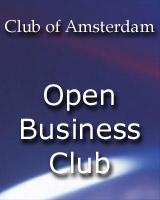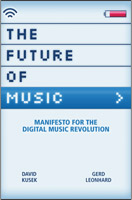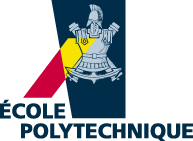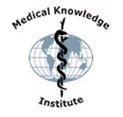
Speakers at the Summit for the Future
Quotes from the Summit for the Future 2005
Kevin Dean, Managing Director – Public Sector Healthcare, Internet Business Solutions Group, Cisco Systems, Inc.: “The potential of e-health is therefore huge. At one point e-health touches active surgical intervention, with surgeons controlling robots over an IP (Internet Protocol) network to perform specialist operations on patients far away, thus scaling the specialist’s ability to provide care beyond their own hospital. At another point, e-health involves providing potentially millions of health professionals with ongoing education via online learning through video-on-demand and web-based interactive teaching. Still further are the use of smartcards, home monitoring and tele-consultations within the world of healthcare provision.”
Tamsin Rose, General Secretary, European Public Health Alliance: “Europe’s population is older, but not healthier. Our lives involve living long periods with health conditions and illnesses. We depend heavily on pharmaceuticals and medical devices to survive, we pay 25 % of our income for healthcare costs. Mental health problems are widespread, suicide levels are high. Socio-economic inequalities reflect starkly in differences in longevity patterns. Scientists are in a permanent race to respond to mutating viruses and emerging new diseases. Mental health problems affect the majority of the population. – How likely is this scenario? What current trends were used to predict this situtation and what can we change?”
Vladimir Petrovskiy, former Director-General of the UN in Geneva: “Promotion of the knowledge-based societies which should be conceives as plural, variable and open to democratic choices makes it necessary to answer the questions what is to be done and how. The European experience should be used together with the recommendation of the UN, UNESCO, ILO and other international bodies. Millennium Development Goals (MDG) are of particular importance.”
Mathijs van Zutphen, philosopher, educator, artist and creator of VISH: “It is important to understand that our reality is constantly changing. The elements of success today may be the causes of failure tomorrow. We have to evolve as life itself does.”
Thomas Schael , Management Consultant with Butera e Partners: “We have to understand that the traditional face-to-face work practice is decreasing. New ways of social interaction have to be put into place. Communities of practice become more important than before, allthough we cannot design and manage them like research teams in the laboratory. Mobility and cross-site teams generate new requirements for support technology.”
Graham May, Futures Skills: “As we know from experience assuming that the future will be like the past is just that, an assumption; that may or may not be true. The negotiations over GATS make it abundantly clear that both the interpretations and the expectations of “free and fair” diverge significantly.”
Natalie Yacheistova , Head of the Russian Trade Representation in The Netherlands: “Taking in mind the core role of innovation for the economic development and competitiveness, additional efforts shall be paid in Russia to the creation and well-functioning of high-tech technologies and knowledge society. But how, by which means can this goal be achieved?
When analyzing the international experience in this area, it may be seen that the countries with the more effective knowledge sector – Sweden, Switzerland, USA, Japan, Denmark – have at the same time the highest international competitiveness. These countries are marked through high amounts paid for research, while the most part of these expenses is taken upon themselves by private companies.”
Pascal Kerneis, Managing Director, European Services Forum: “EU Member States, companies and citizens (consumers and workers) must embrace the Internal “Single” Market to increase the cross-border supply of services between the 25 countries. The recent Proposal for a Directive on Services in the Internal Market encourages the EU member states cut “red tape” and facilitate the cross-border provision of services. Europe will certainly benefit from increased competition in the professional services. Mutual recognition of diplomas and qualifications and eliminating of corporatist rules should aid in this. We expect improvement in all aspects of business-related services (ICT, consulting, after-sale services, advertising, etc.) for its own sake and also for the knock-on effects these sectors add to the economy at large.”
Tom Lambert, Chief Executive, Centre for Consulting Excellence: “People can be generous, but the total aid given by the rich part of the world to our poorer neighbours totals some $50bn annually. A considerable sum, but with 5 billion people living in the countries receiving this support this amounts to just ten bucks per person each year. It is hardly enough to make a difference. Trade can make that difference.”
Valeri Souchkov, Director, ICG Training & Consulting: “The processes of automating of manufacturing and global outsourcing push European enterprises to seek new ways to sustain and increase their value and increase competitiveness rather than increasing production volumes and implementing cost cutting programs. It becomes clear that the future will be defined by those companies that would be capable of not only product manufacturing, but capitalize on creating and distributing Intellectual Property (IP). With strong historical and cultural traditions in science and technology, Europe still has a chance to become the world-leading “brain centre” which will focus on massive creation of high-quality IP in every branch of business.”
Exhibitions at the Summit for the Future 2005
Agenda 21 and Rio + 10 Development Targets
by Bayer CropScience
Who is prepared to read a document of several hundred pages if he or she does not have to for professional reasons? Hardly anyone. Nevertheless, the United Nations Program for Action for Sustainable Development in the 21st century – “Agenda 21” for short – is such an important document that as many people as possible should know its contents. For this reason, Manfred Kern, Head of Bayer CropScience Technology Communication, together with illustrator Peter Schäfer, has selected the principles and tasks most relevant for Bayer CropScience, e.g. effective and efficient management of resources or ICM (Integrated Crop Management) or green biotechnology.
World Summit Award
The World Summit Award will be present with its WSA Roadshow at the Summit for the Future as four categories of the World Summit Award are overlapping with the interest areas of the Summit: e-Business, e-Health, e-Entertainment en e-Science. The WSA Roadshow consists of 40 applications, which were selected for the UN Summit on the Information Society as best-practice examples of e-Business, e-Health, e-Entertainment, e-Science, e-Culture, e-Learning, e Government and e-Inclusion.
The World Summit Award, a global project, held in the framework of the WSIS, seeks to demonstrate the benefits of the Information Society in terms of the new qualities in content and applications, by selecting, presenting and promoting the best products from all over the world with a special emphasis on bridging the digital divide.
Infolution
INFOLUTION provides scalable knowledge management solutions that utilize the power of new semantic technology to enhance the performance and intelligence of enterprises. The solution seamlessly integrates into information domains, which allow customers to instantly source and manage any business critical information. Infolution is unique in that it processes, comprehends and retrieves concepts in the same way as humans do.
With large and small clients including ABN Amro, The Boston Consulting Group, Dutch Policeforce and others world wide INFOLUTION has the products and the recognition to ensure higher return on information and investment from your corporate information.
Visualisations by Job Romijn
Job is an artist pursing the line between art and practicality. As he is an idea generator, he’s setting up a structure to enable him to live of his ideas.
Music at the Opening Event

Marcus Weiss
Professor of saxophone and chamber music, Music Academy in Basel Switzerland
Marcus Weiss is born in 1961 in Basel, studied saxophone with Iwan Roth at the city’s Music Academy, and subsequently with Frederick L. Hemke at the Northwestern University in Chicago. He received the Soloist Prize from the Swiss Musicians’ Association in 1989. He performed with various European orchestras and as a chamber musician with Trio Accanto and Xasax Ensemble. Georges Aperghis, Aldo Clementi, Beat Furrer, Stefano Gervasoni, Vinko Globokar, Manuel Hidalgo, York Höller, Toshio Hosokawa, Michael Jarrell, Hanspeter Kyburz, Helmut Lachenmann, Detlev Müller-Siemens, Giorgio Netti and Salvatore Sciarrino have written works specially for him. The recordings of some of them are available on cd. His discography also includes pieces by Schönberg, Berio, Webern, Wolpe, Cage, Scelsi, Netti, Ablinger and Sciarrino.
Live Music
Russian singer Marynka Nicolai and her band ‘Some Lovely Girls’ perform during the Summit for the Future on Wednesday evening and Friday afternoon.  | |
See also: Leisure Evening |
Club of Amsterdam Open Business Club

Summit for the Future: Opening Event
Attent the Opening Event of the Summit for the Future – meet with global thought leaders! Date: Wednesday, January 26, 2005, 09:30-12:30 Location: HES Amsterdam School for Business, Amsterdam, The Netherlands https://clubofamsterdam.com/2020/10/27/summit-for-the-future-2005/ |
Recommended Book
| The Future of Music by Dave Kusek, Gerd Leonhard For the next generation of players and downloaders, a provacative scenario from a music industry think tank From the Music Research Institute at Berklee College of Music, comes a manifesto for the ongoing music revolution. Today, the record companies may be hurting but the music making business is booming, using non-traditional digital methods and distribution models. This book explains why we got where we are and where we are heading. For the iPod, downloading market, this book will explain new ways of discovering music, new ways of acquiring it and how technology trends will make music “flow like water”, benefiting the people who love music and make music. Publication date: March 2005 |
Club of Amsterdam Upcoming Events
| Special Events | |
| January 26-28, 2005 | Summit for the Future 2005 |
 | |
| Club of Amsterdam Season 2004/2005 | |
| October 27, 2004 | the future of ICT |
| November 30, 2004 | the future of Developing Countries |
| February 23, 2005 | the future of the Service Industry |
| March 30, 2005 | the future of Water |
| April 27, 2005 | the future of Branding |
| June 1, 2005 | the future of Robotics |
| June 29, 2005 | the future of Philosophy |
| . |






















































Customer Reviews
Thanks for submitting your comment!